Lead qualification determines which potential customers will most likely buy from your business. It helps you focus on people interested in what you offer, saving time and effort. This ensures you talk to the right people at the right time. It helps you determine which leads are most interested and have the best chance of becoming customers.
This simple guide will explain what lead qualification means, why it’s important, and how it can help your business grow. If you’re new to sales or want to learn more, this article will give you an easy-to-understand look at lead qualification.
Let’s get started.
What is Lead Qualification?
Lead qualification is a process that identifies potential customers, also known as leads, to determine whether they are likely to buy your product or service. Only some people or companies that show interest in your business are ready to purchase.
It helps you understand which leads are most interested and have the best chance of becoming customers.
Why is Lead Qualification Important?
It is important for many reasons, including saving time, effort, and money. Without it, companies might spend too much time selling to people who are not ready to buy or aren’t a good fit for their products.
By qualifying leads, businesses can:
- Focus on the Best Leads
- Increase Sales Efficiency
- Improve Marketing
- Build Stronger Relationships
Types Of Lead Qualification
There are different ways to qualify leads.
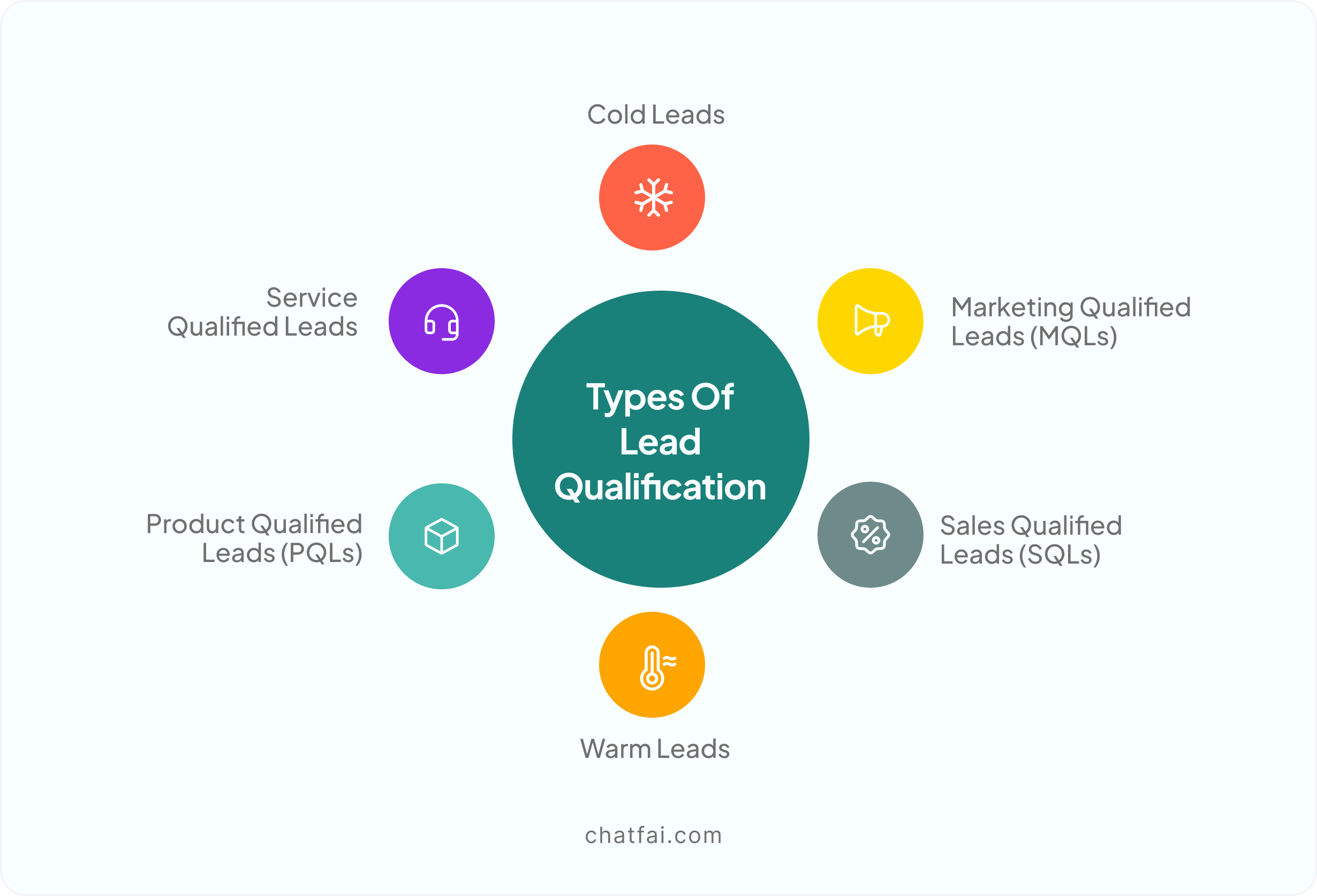
Below are the most common types:
1. Marketing Qualified Leads (MQLs)
These people have shown interest in your business by engaging with your marketing, such as downloading a free guide or signing up for emails. They’re interested but not ready to buy yet.
Example: Someone who signs up for your website.
2. Sales Qualified Leads (SQLs)
These leads are ready to talk to your sales team. They’ve shown serious interest, like asking for a demo or pricing details.
Example: A person who requests a product demo.
3. Product Qualified Leads (PQLs)
These leads have tried your product (like a free trial) and are now considering buying it.
Example: Someone who uses your software for a trial and likes it.
4. Service Qualified Leads
These leads have shown interest in your service, like asking for more details or upgrading.
Example: A person who asks about upgrading their plan.
5. Cold Leads
These leads have shown little interest and require much effort to engage. They might not be ready to buy yet.
Example: Someone who filled out a form but didn’t do anything else.
6. Warm Leads
Warm leads have shown some interest, like visiting your website or opening emails, but they’re not ready to buy yet.
Example: A person who opens your email offers but hasn’t bought yet.
These types help businesses know which leads to focus on and how to move them closer to becoming customers.
How To Qualify a Lead
Qualifying a lead means determining if someone is interested in becoming a customer. Here’s how you can do it:
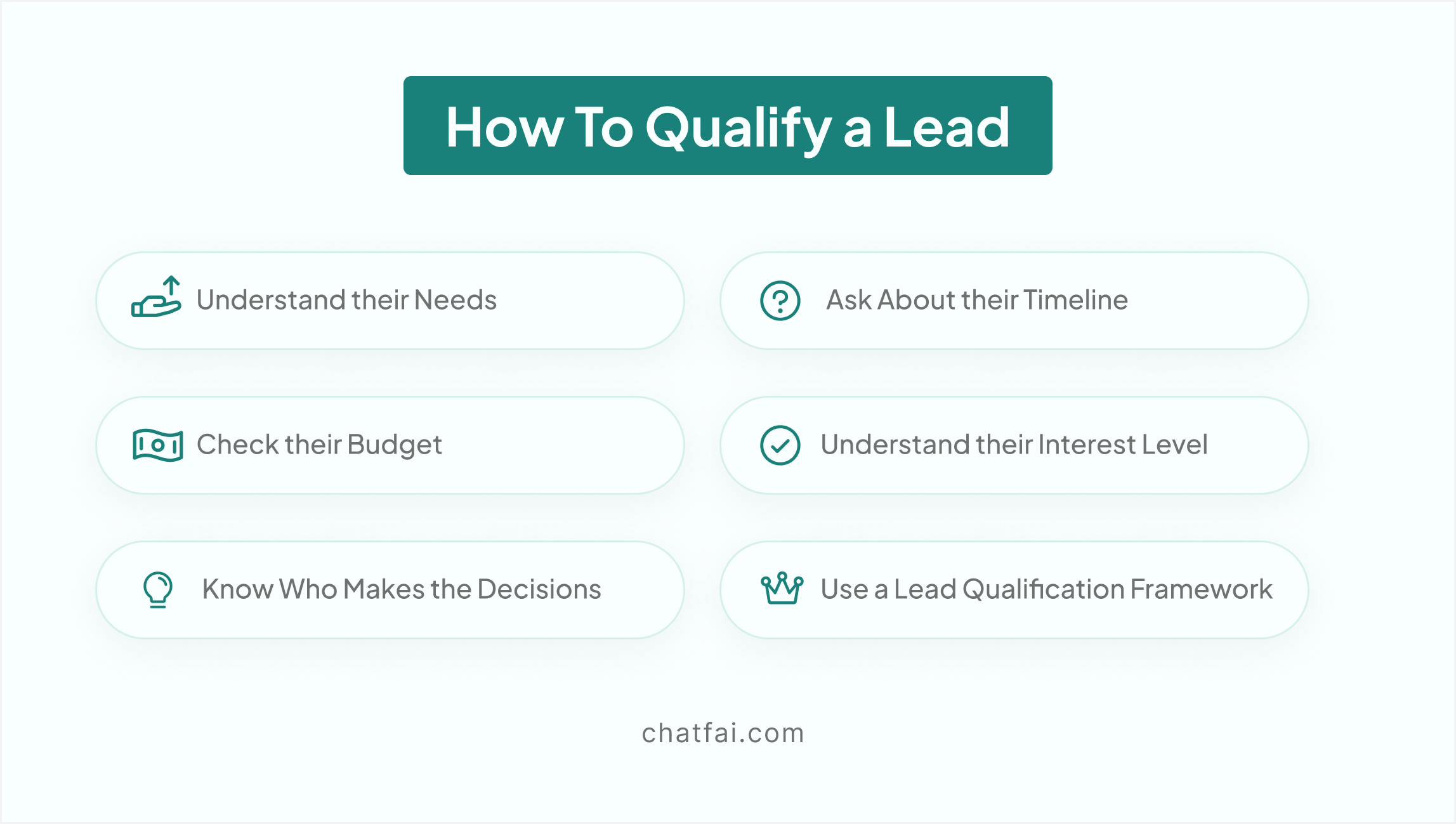
To qualify a lead, understand their needs and whether your product can help. Check their budget to see if they can afford it and identify the decision-maker. Ask about their timeline to know when they plan to buy.
Look at their interest level, such as asking for more info. Finally, use frameworks like BANT or CHAMP to guide your questions and ensure the lead is worth pursuing.
Lead Qualification Frameworks
This framework is a set of guidelines that helps sales and marketing teams understand which leads can be converted into customers.
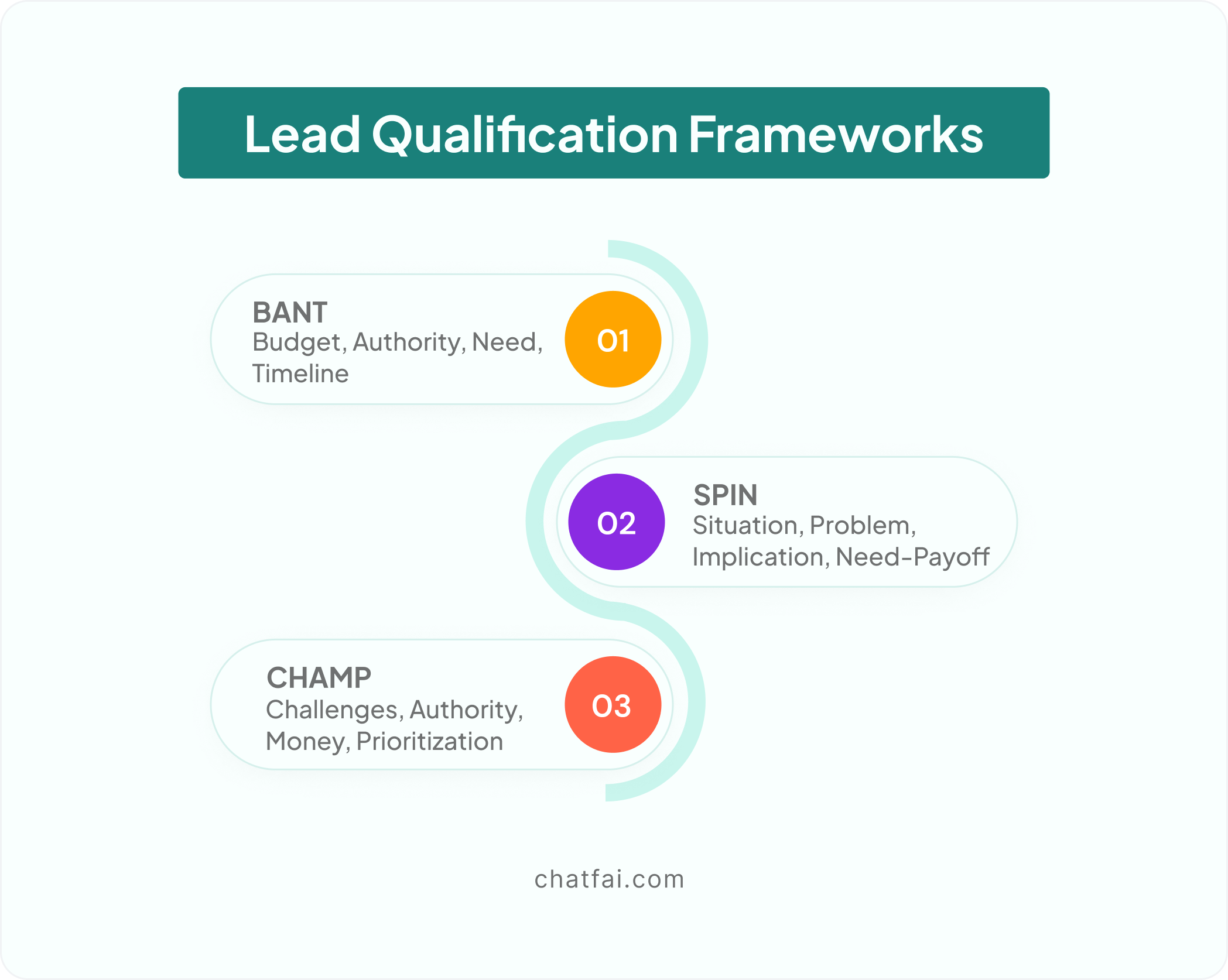
Some popular frameworks include:
1. BANT (Budget, Authority, Need, Timeline)
This framework helps you assess if a lead has the right budget, decision-making power, need for the product, and a timeline for purchasing.
2. CHAMP (Challenges, Authority, Money, Prioritization)
This approach focuses on understanding the challenges the lead faces, who has the decision-making power, their budget, and how important solving the problem is to them.
3. SPIN (Situation, Problem, Implication, Need-Payoff)
Thia framework asks specific questions that help understand the lead’s current situation, the problem they face, the implications of not solving it, and how your solution could help.
You can build stronger relationships and make smarter decisions using this framework. You get the point, right?

Lead Qualification in Marketing vs Sales
Qualifying leads involve both marketing and sales teams but focus on different things. Here’s a simple breakdown of how lead qualification differs in marketing and sales:
Marketing Lead Qualification:
- Focus: Marketing identifies and promotes leads interested in a product or service.
- Criteria: Marketing teams typically qualify leads based on demographic information and behavioral actions (like visiting a website, downloading a resource, or clicking on an ad).
- Goal: Marketing aims to gather as much information as possible to assess whether a lead is a good fit and likely to convert into a customer.
Sales Lead Qualification:
- Focus: Sales teams take over once marketing has passed a qualified lead. Sales focus on further evaluating the lead’s interest, needs, and ability to buy.
- Criteria: Sales qualification often studies the lead’s intent to purchase. It focuses on factors like budget, decision-making power, and urgency.
- Goal: The sales goal is determining whether a lead is ready to purchase.
Key Differences
- Marketing: Qualifies leads based on interest level and fit (MQLs).
- Sales: Focuses on the lead’s buying potential and readiness (SQLs).
Tools for Lead Qualification
These tools help businesses analyze and prioritize potential customers, called leads, to see if they will make a purchase or become long-term clients. These tools help sales teams focus their time and resources on leads that can be converted into customers.
Here are some tools that you can use for qualifying leads:
- Structurely
- Hubspot
- Acquire
- Overloop
- Drift
Why Lead Qualification Tools Matter?
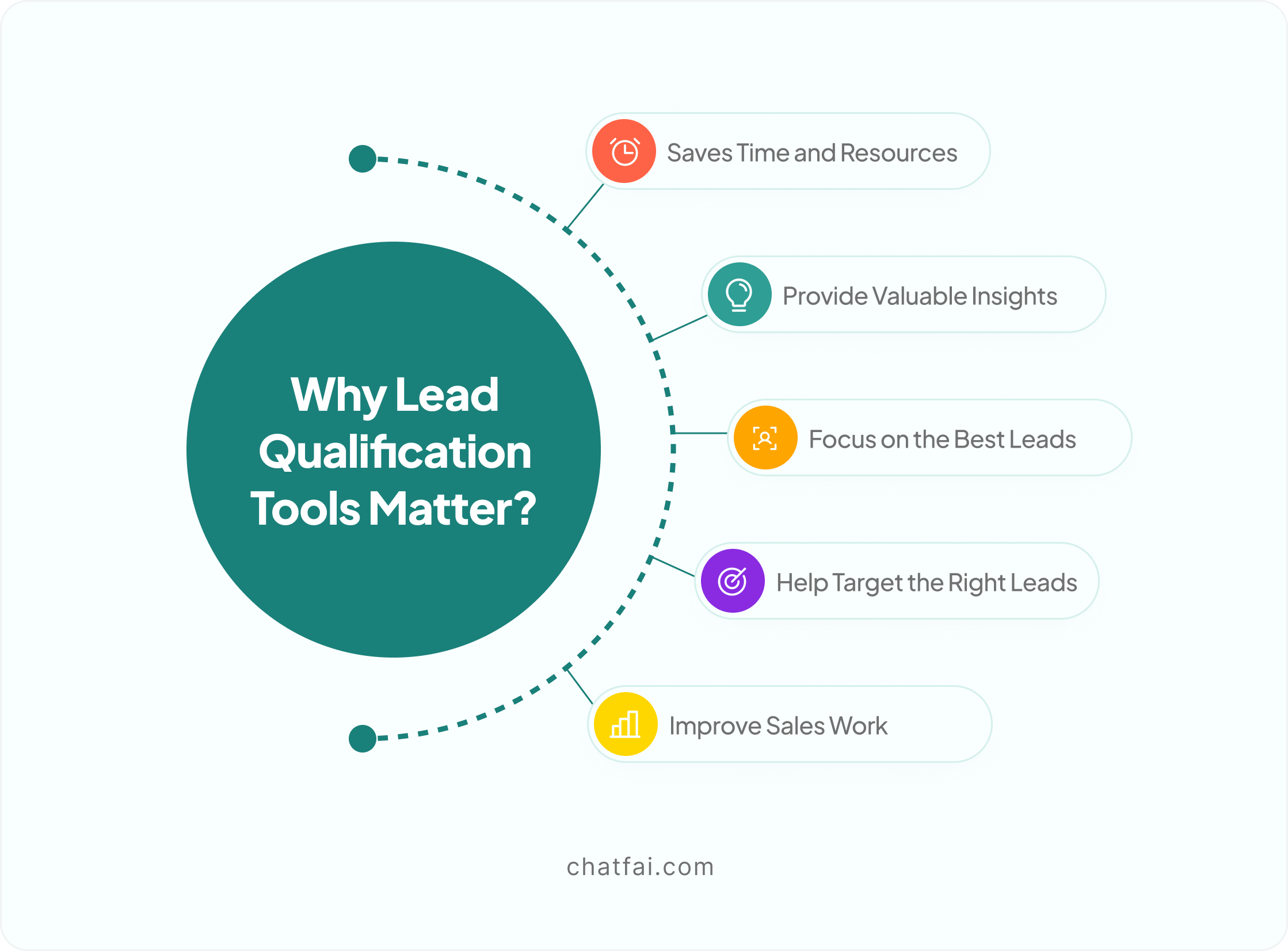
These tools help businesses save time, money, and resources by focusing on leads that can be converted into business. They are a lifesaver.
Benefits of Lead Qualification
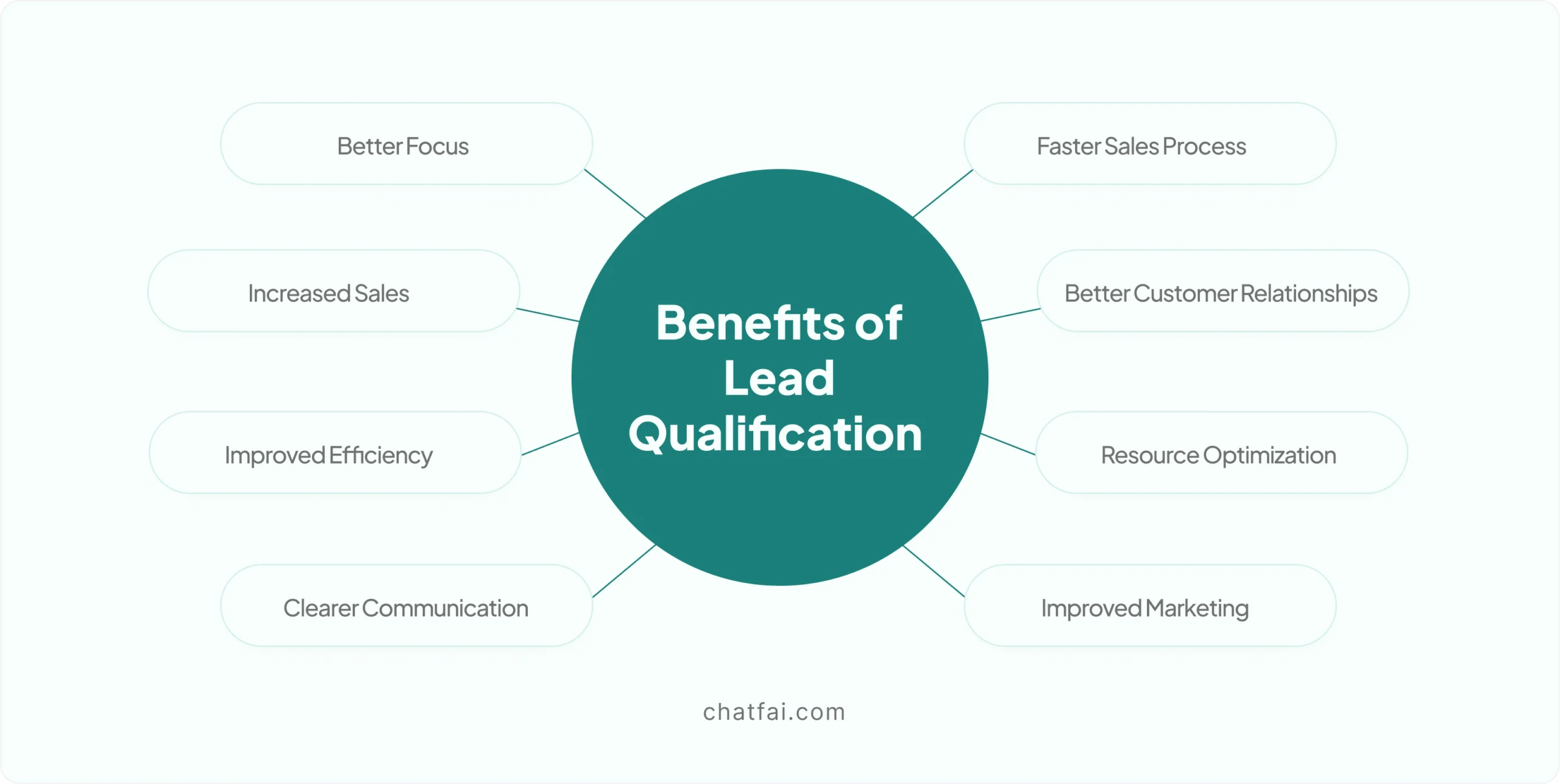
These benefits of lead qualification help businesses grow.
Conclusion
Lead qualification is the process that helps businesses find the right people who are ready to buy. By genuinely managing who is interested, businesses can save time and effort. Using frameworks like BANT or tools like Hubspot can make lead qualification easier.
These leads can help businesses close more sales, use resources wisely, and build strong relations. Using lead qualification today helps your business grow and succeed.
Ready to improve your lead qualification? Start now and see the difference.
FAQs
Q: What is meant by lead qualification?
Lead qualification determines which people or companies will most likely buy from your business.
Q: What qualifies as a lead?
A lead is anyone interested in your product or service, like signing up for your newsletter or asking for more information.
Q: How do you qualify someone as a lead?
You qualify a lead by understanding their needs, budget, interest, and how likely they are to buy from you.
Q: What is the qualifying leads process?
The process involves gathering information about the lead’s needs, budget, and interest level to decide whether they are a good fit for your product or service.
Q: What is an example of a lead qualification?
An example is someone downloading a free guide from your website and then asking for a product demo.
Q: What is the lead qualification framework?
A lead qualification framework is guidelines or questions to determine if a lead is worth pursuing.
Q: What are the 4 characteristics of lead?
- Interest in your product
- Need for your product
- Budget to afford it
- Authority to make a decision
Q: What comes after lead qualification?
After Lead qualification, the next step is to examine the lead or pass it to the sales team for further contact.
Q: What does a lead qualification specialist do?
This specialist assesses and qualifies leads, ensuring they are ready to talk to the sales team.